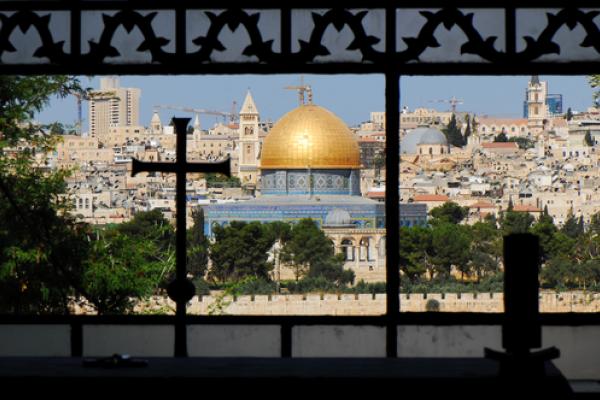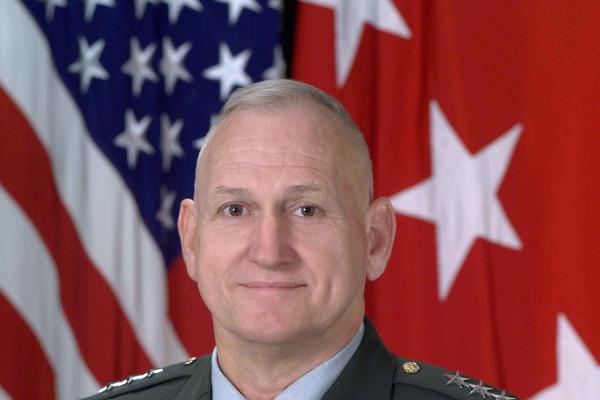From CNN:
A federal judge ordered a Tennessee county to conduct a final inspection of a new mosque, clearing the way for worshippers to possibly begin using the building in time for the start of the Muslim holy month of Ramadan on Thursday.
The ruling by U.S. District Judge Todd J. Campbell is the latest development in a two-year battle over the opening of the Islamic Center of Murfreesboro, near Nashville, that has been marked by legal challenges and anti-Muslim sentiment.
Read more here
Many of us take great care of where our food comes from, whether it is organic and has been treated humanely. But do we take the same care over the workers who grow and pick that food? Apparently not, according to Salon:
The food industry employs one in five private sector workers. Yet only an estimated 13 percent of those workers make a living wage. Thanks to lobbying by the National Restaurant Association (once led by Herman Cain), the national minimum wage for tipped workers is $2.13 per hour. Many warehouse and farm workers are paid by the piece, which can amount to even less. And so, in a situation riddled with irony, food-system workers rely on food stamps at double the rate of rest of the U.S. workforce.
The Associated Press reports on Presidential candidates attempts to sway the middle classes, and the lack of clarity about just who the middle class actually are:
In a recent speech, President Barack Obama referred to the "middle class" 14 times, defining it as a family that makes up to $250,000 a year. Republican challenger Mitt Romney has looked at it from the other direction, saying that someone who falls into poverty "is still middle class."
In the fuzzy labels and loose speech of this political season, "middle class" has ballooned to cover just about everyone. So what does the term really mean?
There's no official definition.
If anything, a slew of economic data suggests a middle class that's actually shrinking. Mid-wage manufacturing and other jobs are disappearing due to automation and outsourcing, while lower-income positions and poverty spike higher. The White House's chief economist, Alan Krueger, said in January that the middle class fell from 50 percent of U.S. households in 1970 to 42 percent in 2010, as more families moved to the extreme ends of income distribution.
But it's not just about economic ranges. And politicians are not bound by such gauges anyway.
Learn more here
Independence Day in Joplin, Mo. saw fireworks of a different kind. On July 4, the Islamic Society of Joplin’s mosque was set on fire. While the mosque has only been open since 2007, it has already been targeted twice by arsonists. These hateful attacks must stop.
The biblical call to love our neighbors as ourselves requires Christians to speak out against these attacks. By protecting the rights of American Muslims to worship in the United States, we provide a powerful witness to those countries where Christian minorities face attack and persecution, such as Nigeria, Egypt, Somalia, and Kenya. If we expect others to take our advocacy for global religious freedom seriously, then our efforts must begin in our own backyard.
While the FBI is investigating the incident, the fact that a religious community was targeted means the attack should be investigated as a potential hate crime. Christians around the country are speaking out to ensure the Department of Justice gives this the necessary attention it deserves. Add your voice to the petition calling for a hate crimes investigation and show a little love to your Muslim neighbors in Joplin, Mo.
As more details of this morning’s bombing in Damascus are known, the casualty list is growing. Among those killed were Syria’s Defense Minister, Deputy Defense Minister (who was President Bashir’s brother-in-law), and a senior general who was also a former Defense Minister. The head of the National Security Office and the Interior Minister were among those seriously wounded.
In an early afternoon story, the Associated Press quoted U.S. Defense Secretary Leon Panetta saying that the crisis in Syria is "rapidly spinning out of control.” British Defense Minister Philip Hammond, who spoke at a press conference with Panetta, said the Assad government is suffering "probably some fragmentation around the edges" as it struggles to keep a grip on power. "There is a sense that the situation is deteriorating and is becoming more and more unpredictable," Hammond said.
A later AP report noted:
"Rebels claimed responsibility for the attack, saying they had been planning it for two months and finally decided to plant the bomb in the room where the top government security officials in charge of crushing the revolt were holding a crisis meeting."
Reuters reported this afternoon on the continuing violence:
"The government vowed to retaliate, and residents said army helicopters fired machine guns and in some cases rockets at several residential districts. Television footage showed rebels storming a security base in southern Damascus. By nightfall, activists said Syrian army artillery had begun shelling the capital from the mountains that overlook it."
As the violence escalates, let us pray for a peaceful resolution in Syria, especially for the civilians caught between the two forces.
The conservative Family Research Council has named a former top Delta Force commando and outspoken culture warrior, retired Army Lt. Gen. William G. "Jerry" Boykin, to run its day-to-day operations.
Boykin’s appointment as executive vice president of the FRC, a mainstay of the Christian right, is designed in part to highlight conservative opposition to President Obama’s military policies, particularly his decision last year to repeal the Pentagon’s ban against gays and lesbians serving openly in the armed forces.
“The Obama administration has undermined our nation's security and increased the risk to those who serve by systematically using our nation's military to advance a liberal social agenda,” FRC President Tony Perkins said in announcing Boykin’s appointment on July 16.
Carpenter Nick Offerman takes another break from his workshop to read tweets from young celebrities --- Pete Seeger stops by WNYC to talk about his new book --- Fictitious Dishes photo gallery features meals from novels -- documentary on bird watching in Central Park. See these and more in today's Links of Awesomeness...
Many discussions about the use of drones center on whether using drones is “moral,” that is, does it satisfy just war doctrine? Is the use of an unpiloted drone morally different from a jet fighter, a helicopter gunship, or an infantryman with a rifle?
Scott Shane, national security reporter for the New York Times, recently attempted to argue "The Moral Case for Drones." Frankly, his case is weak. Shane dismisses as “baggage” a number of the most important arguments: “their lethal operations inside sovereign countries that are not at war with the United States raise contentious legal questions. They have become a radicalizing force in some Muslim countries. And proliferation will inevitably put them in the hands of odious regimes.”
Then the rest of the column deals with whether or not civilians are being killed.
It often seems that just as we begin to get our heads around how we might understand our world, everything changes. There have been tipping points at various moments in history; events or advances which move us from one epoch to another in such a way that we can never see the world with the same eyes again. It happened during the Industrial Revolution; it happened with the Communications Revolution; and it happened on September 11, 2001.
And according to Ayesha and Parag Khanna, we are approaching (or indeed, have already reached) another of these defining moments—what they call “The Hybrid Age.” In their book, Hybrid Reality: Thriving in the Emerging Human-Technology Civilization, published as part of the TED Books series, they examine how we have reached this moment, and what that means for our futures, and for generations beyond our own.
Hybrid Reality, in a similar fashion to many of the e-books that have developed out of the popular series of talks, reads like a manifesto – and in this case, it is a manifesto for navigating the unknown, exciting, and at times, downright terrifying potential futures which we are opening ourselves up to as technology becomes more and more sophisticated and more and more a part of us.
In Mandela: An Audio History, the voices of activists, artists, and ordinary citizens unite to tell the powerful narrative of overcoming apartheid through strength and solidarity in South Africa. In this five-part audio documentary, hosted by Desmond Tutu, the weaving of personal interviews, newsreels, and found sounds from Mandela and those around him (both for and against) are highlighted to showcase the watershed story of a 50-year struggle.
CLICK HERE TO LISTEN TO THE FULL SERIES OF AUDIO DOCUMENTARIES
Take a listen to Part One: 1944 –1960



